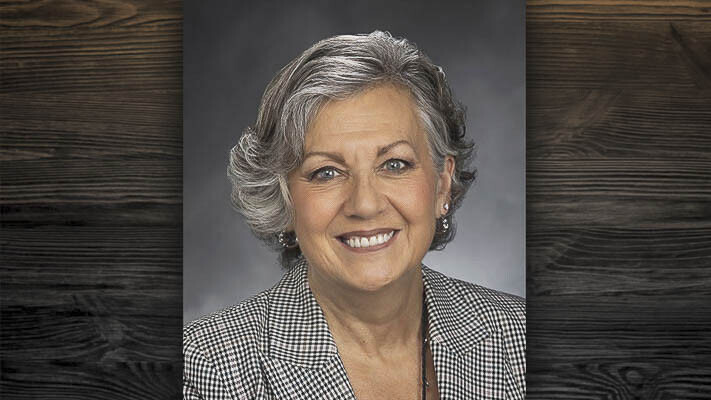
Supplemental operating budget went before the Senate Ways and Means Committee for a public hearing Monday afternoon
The Senate supplemental operating budget proposed today would address a host of public-safety priorities while maintaining essential services and balancing without new taxes, according to Sen. Lynda Wilson, Senate Republican budget leader.
Between the attention to Washington’s drug-overdose crisis, the smallest policy-related spending increase in a supplemental budget since 2016, and leaving more than $4 billion in reserve, Wilson says the $71.6 billion proposal tracks with her priorities. It came before the Senate Ways and Means Committee for a public hearing this afternoon.
“For one reason or another the past few supplemental budgets strayed from what should happen in year two of a two-year spending plan. This proposal is much more of a back-to-basics approach, and as I hoped, it lives within the means provided by the taxpayers. That’s important seeing how families across Washington are making difficult spending choices to live within their means,” said Wilson, R-Vancouver.
“I also appreciate the bipartisan support for addressing what Republicans see as situations that can’t wait for a full budget rewrite next year, starting with public safety. This proposal will help make Washington safer.”
Wilson called out the $4 million annual boost proposed for anti-drug task forces, and more money for additional corrections-officer training, auto-theft prevention task forces, and the crime-victim and witness-assistance account used by prosecutors. She also pointed to added support for bolstering access to public defense; combatting impaired driving; increasing penalties for property crime; and dealing with the sharp increase in cannabis-retail robberies.
The “One Pill Kills” public-service campaign aimed at discouraging opioid use by young people, proposed in Wilson’s SB 5906, is supported in the Senate proposal, as is another Republican bill, SB 6099. It would guarantee 20% of opioid-settlement funds are focused on tribal programs to combat opioids, including prevention and recovery services, educational campaigns and support for first responders.
There’s also money for a legislative-led audit of the executive branch’s juvenile rehabilitation efforts, within the Department of Children, Youth and Families, in light of mismanagement concerns at Green Hill School in Lewis County and Echo Glen Children’s Center in King County.
The largest single addition in the Senate proposal is $250 million for behavioral-health access, primarily for bedspace at a new treatment facility in Tukwila, more capacity at Washington’s two state-run psychiatric hospitals, and the University of Washington behavioral-health teaching facility coming online in mid-2025.
“Access to treatment is a critical part of the fight against fentanyl and other synthetic opioids. All of our efforts need to move forward this year,” she said.
Also read:
- Opinion: OIC tells consumers not to pay for ‘insurance’ you won’t likely benefit from: Does that include WA Cares?Elizabeth New (Hovde) of the Washington Policy Center believes you should consider yourself warned by the Office of the Insurance Commissioner about WA Cares and its maybe-only benefit.
- Opinion: Same road, different speed limit?Target Zero Manager Doug Dahl addresses a question about speed limit signs going into and leaving town.
- Progress being made at GRO Parade of Homes siteThe 2024 GRO Parade of Homes, presented by the Building Industry Association of Clark County, is a little more than a month away, and builders are busy completing the luxury homes before the big event, scheduled for Sept. 6 through 22 in Felida.
- Has trust in the media tanked over coverage of President Biden’s decline?After President Joe Biden’s calamitous debate performance against former President Donald Trump, and days after Biden’s decision Sunday not to seek reelection, there are still many questions about how the news media covered Biden’s mental and physical decline.
- Opinion: Hiding the growing cost of the Interstate Bridge replacementJoe Cortright of the City Observatory addresses the rising cost of the Interstate 5 Bridge replacement project.
- Letter: ‘This election I am NOT voting for Greg Cheney’Clark County resident Wynn Grcich shares her thoughts on Rep. Greg Cheney and the issue of fluoridation in area drinking water.
- Major gas line leak closes major arterial in Clark CountyFirefighters from Clark County Fire District 6 responded Thursday (July 25) afternoon to the scene of a major natural gas leak on NE 99th Street, directly in front of Columbia River High School.











